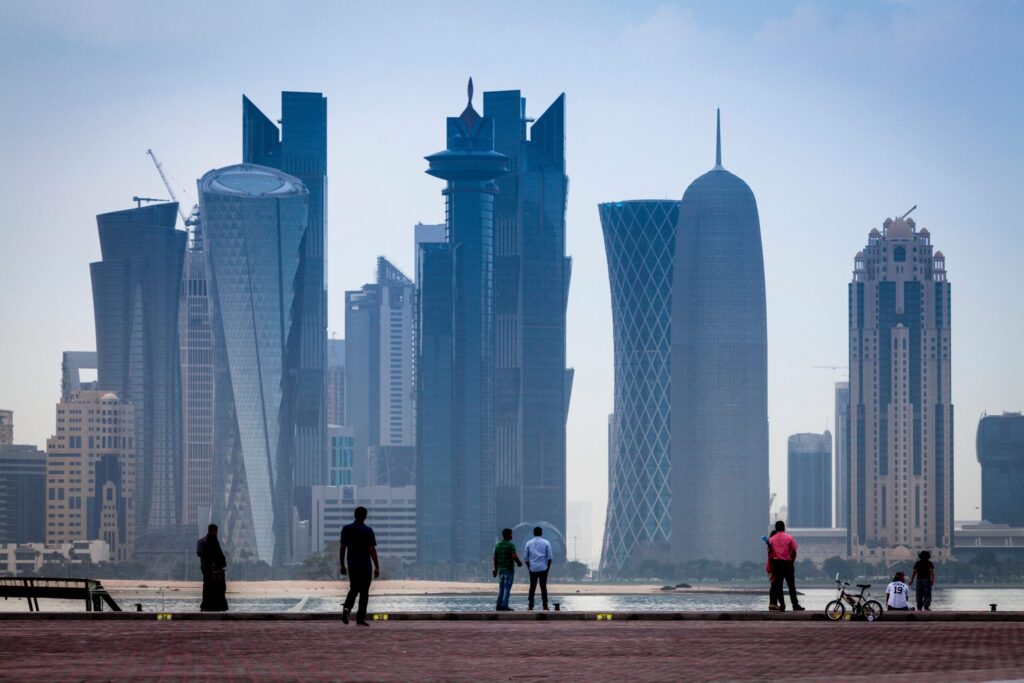Swifthold to request arbitration
Debt owed by royal family member
Dispute over Libyan property loan
Swifthold Foundation, a Panama-registered Anglo-Spanish family office, is mounting legal action against the state of Qatar over a $6 billion debt owed by a member of its royal family, the latest stage in a dispute that dates back more than a decade.
Swifthold, whose individual founders or beneficiaries are not publicly known due to the confidential nature of the Panama structure, is preparing to file a request for arbitration next month over the debt owed by Sheikh Fahad bin Ahmed bin Mohammed Al Thani, a cousin of the former Qatari prime minister Hamad bin Jassim bin Jaber Al Thani.
The request is an escalation of years of legal action against Sheikh Fahad and his Fast International Trading Group (FTG). Very little is publicly known about the Qatar-based company’s business activities.
It is the first time that Swifthold has taken such action against the Qatari state.
The case against Sheikh Fahad raises questions over the strength of legal and other protections afforded to international investors in Qatar, lawyers for Swifthold say.
“Essentially, we are getting the runaround,” Baiju Vasani, a barrister at Twenty Essex Chambers, retained by Swifthold’s lawyers, told AGBI. “There has been a systemic evasion of our attempts at every step.”
The dispute revolves around a $900 million bond transfer in 2009 from Swifthold to FTG. The loan was intended to fund two “potentially lucrative” resort developments in Libya, according to legal documents seen by AGBI.
One of the projects, known as the Green City, was a proposed resort comprising luxury hotels, golf courses and a cruise ship terminal on Libya’s Mediterranean coast.
The project, along with many others, was abandoned following the overthrow of Colonel Muammar Gaddafi in 2011.
FTG was to enhance the bond and reinvest the funds to generate further returns but failed to follow through, the documents say.
Swifthold then brought a civil fraud claim against Sheikh Fahad and FTG in the UK High Court, arguing breach of obligations and seeking recovery of a debt that by then had topped $6 billion.
In 2011, the UK court ruled in Swifthold’s favour and awarded it $4.4 billion — the claim sum minus interest.
The claimants had initial success enforcing the judgment in Qatar, with the Court of First Instance upholding the UK ruling in 2019 and ordering Sheikh Fahad and FTG to pay.
However, Qatar’s Court of Appeal overturned the decision in 2020. In 2021 the Court of Cassation, the most senior court, rejected Swifthold’s right to enforce the judgment in Qatar.
The claimant says repeated attempts to recover the dues have been frustrated, citing Qatari national interest.
In its latest action, Swifthold will allege that the Qatari courts’ decisions are unreasonable and breach the Panama-Qatar bilateral investment treaty, which aims to protect international investor entities and grant them fair and equitable treatment.
“Qatar’s measures are an affront to the international rule of law,” the claimants’ lawyers wrote in a letter to Qatar in 2021, seen by AGBI.
In it, they gave notice of their intention to file an arbitration request and instigated a “cooling off” period that has now expired.
“Qatar and its nationals actively participate in the UK economy and enjoy the protections of English law as enforced by English courts,” the letter reads. “But Qatar’s actions suggest that its justice system will not respect the decisions of English courts when compliance proves inconvenient or embarrassing.”
The Qatari courts argue that the UK judgment and other rulings mentioned in the claim were not attested by the Qatari embassy in London. They are therefore not valid, according to court documents seen by AGBI — even though the judgments came from the official source and are publicly available and verifiable, the claimants say.
The Qatari courts also say the claimants have not adequately proved that the UK would enforce a similar judgment in favour of Qatar were the jurisdictions reversed.
Sheikh Fahad has not attended the court hearings and neither he nor FTG have been represented in the UK courts. In a separate but related case, the Manchester High Court issued an arrest warrant against him last May.
FTG was represented in the most recent enforcement proceedings in Qatar by Abdullah Essa Al-Ansari, whose Doha law firm could not immediately be reached for comment. Qatar’s state media office and its Ministry of Justice did not respond to AGBI’s request for comment.



